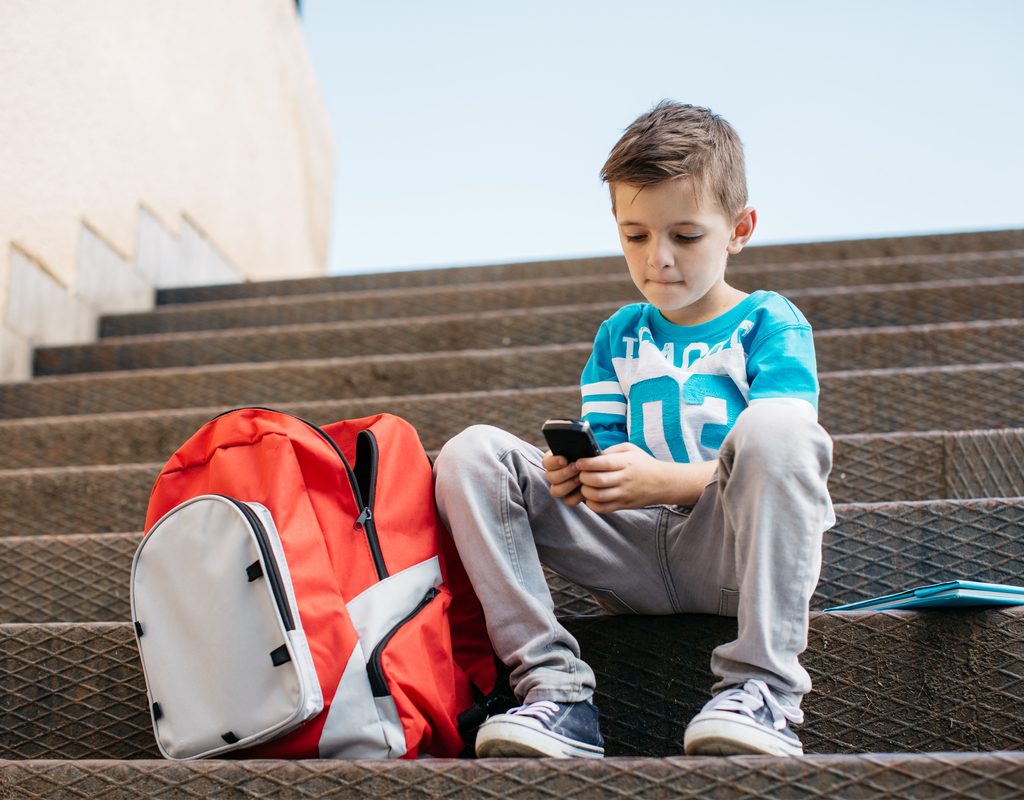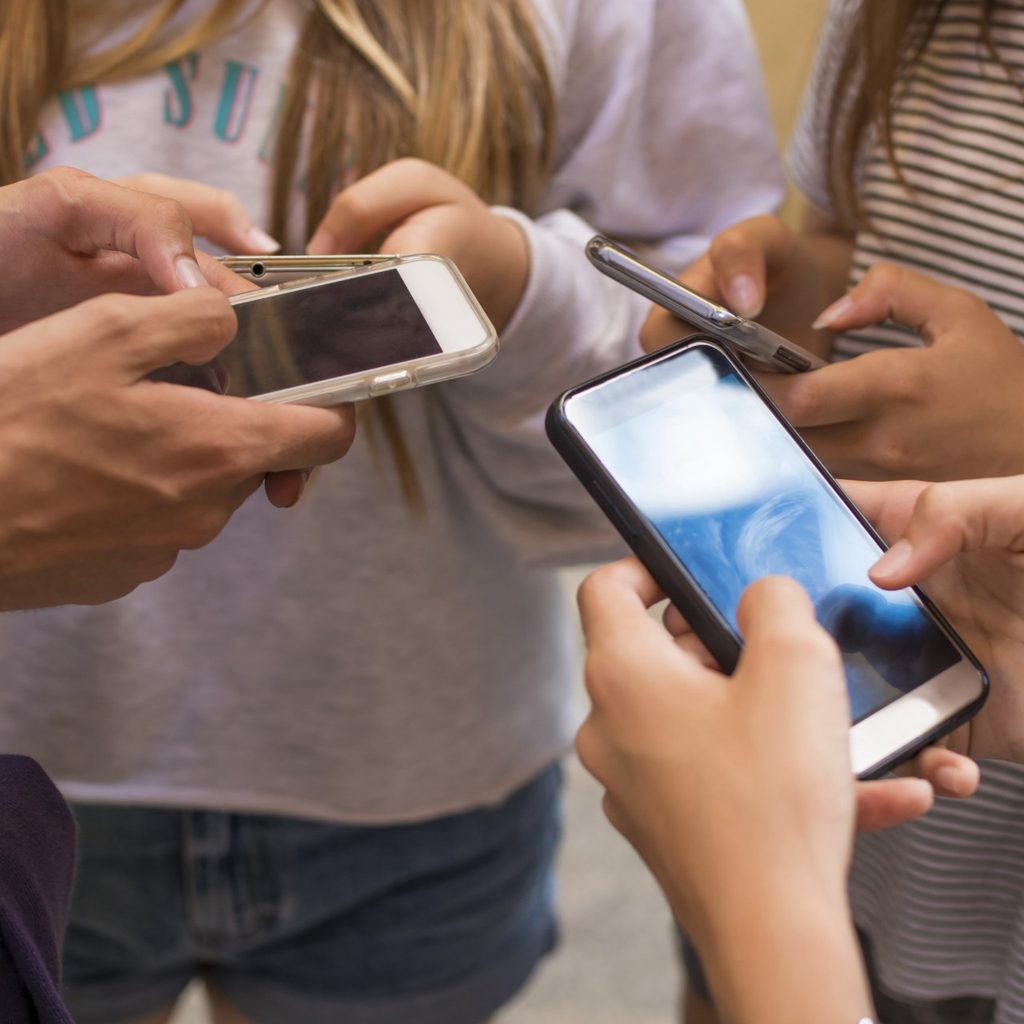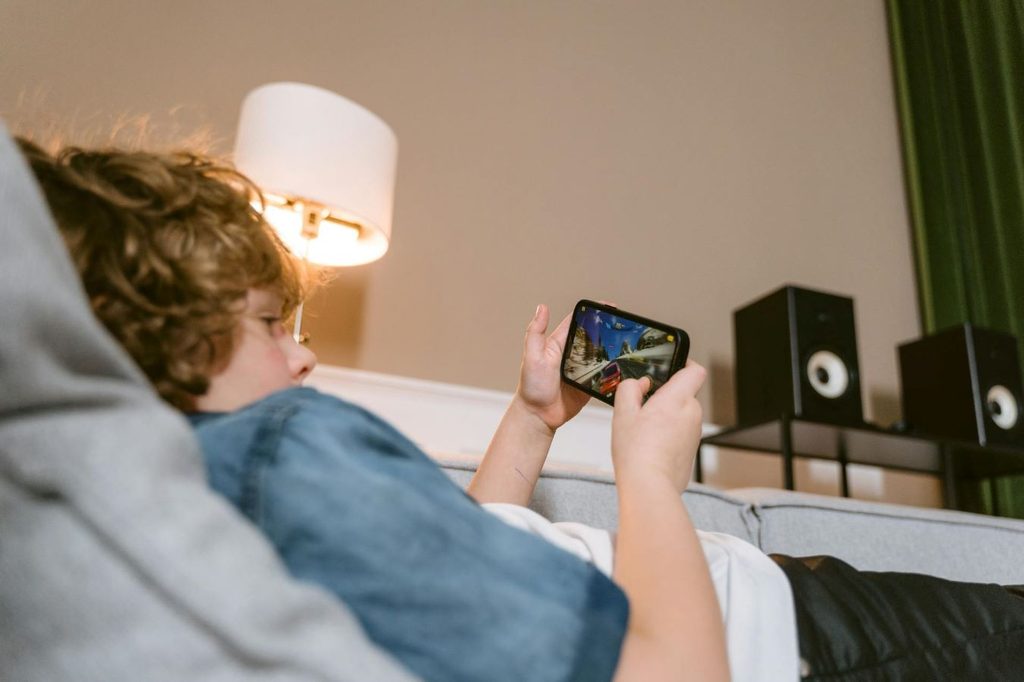These days, everyone seems to have a cellphone, including kids. Cellphones can be a great tool for many different reasons, but kids seem to fall down a rabbit hole, much like Alice did, when they get a smartphone. Life quickly becomes a battle between parent and child regarding screen time. For parents deciding whether kids should have cellphones, the pros need to outweigh the cons.
It doesn’t take long for a cellphone to rapidly become an extension of your child’s hand with online games, videos, social media, and texting. Then, of course, there is the Pandora’s box a smartphone opens, like cyberbullying, sexting, inappropriate content, trolls, stalking, social media, privacy, and health concerns.
So, are there pros to letting your kid have that little rectangle in their life? Here are reasons why kids should have cellphones.
Why kids should have cellphones

The reasons to keep a smartphone away from your child for as long as possible are compelling. Cellphone addiction is an issue many parents are dealing with. A smartphone is an expensive piece of technology that kids may take for granted.
There’s the lure of the cellphone, and those engaging apps take kids away from things they should be doing, such as homework, practice, and more hands-on activities that offer educational benefits. But there are pros to why kids do need cellphones, especially when they hit double digits.
For emergency use
Once kids hit middle school, they are on their own more. They’re hanging out with friends or walking home from school, practice, or after-school activities, and payphones have gone the way of the dinosaur. In the event of an emergency, your child needs a way to contact you or dial 911. A smartphone is important once teens begin driving, so in the event of an accident or another emergency, parents can be reached quickly.
To stay connected
With a smartphone, your tween or teen can text you if the school bus is running late or when practice is over. They could easily let you know where and when they need to be picked up, which means you won’t waste time waiting in the car in the school parking lot or at the soccer field. When kids hit high school, a text to come to get them if a party is getting out of hand or they find themselves in an uncomfortable situation is a must.
For safety purposes
Teens may be excited when they get their driver’s licenses, but it’s a stressful time for parents. Installing a GPS tracker like Lif360: Find Friends & Family lets parents keep track of their child’s location through the smartphone. Life360 also provides weekly updates on your teen’s driving. This allows you to keep tabs on whether they’re driving safely when you’re not in the car.
More importantly, it lets you know where your children are. The Life360 app isn’t just for teen drivers either. It helps parents keep track of tweens and younger teens when they are out with their friends, especially if your child is the one who forgets to text updates.
It teaches responsibility
A smartphone is an expensive piece of technology, and it’s a privilege to have one. Tweens and teens are learning valuable responsibility lessons when they have a cellphone, like they need to keep the smartphone safe and not lose or damage it.
Kids learn how to stay within their data, voice, and texting limits. Parents should hold their tweens and teens accountable when there are issues with their smartphones, such as going over their data limits, misplacing the phone, or damaging the phone.
For social connections
Once they’re in middle school, kids start to make their own social connections. Playdates are gone, and parents don’t control the social calendar as much. Since landlines have been put out to pasture, texting, social media, and whatever the popular messaging app is at the moment are how tweens and teens keep in touch, make plans, and yes, even discuss homework assignments. When your kid doesn’t have a smartphone, they are definitely out of the loop.
To be more organized
Even if the school still provides kids with planners, most don’t use them. A conventional planner is usually stuck at the bottom of a backpack or locker and doesn’t come home until the final day of school. Smartphones are a great way to keep kids organized. Family calendars can be shared so kids know when appointments are or when they’re supposed to be at practice. Reminders can be set for homework, to study for tests, and even to remember to put that retainer in.
Other reasons why kids should have cellphones

- Trust: Just like responsibility, having a smartphone is a lesson in trust. If tweens and teens breach that trust with their cellphones, there will be consequences.
- School: Some teachers and coaches use social media to keep kids updated on practices, assignments, and tests. Other districts use apps to help kids stay on top of homework and projects. Many teachers also use school messaging apps to send test and quiz reminders.
- Divorce: A smartphone makes it easier for children who split time between two households to stay in touch with both parents.
- Keeping in touch with extended family: Everyone has a smartphone these days, even grandparents. With a smartphone, kids can Facetime Grandma and Grandpa, as well as keep in touch with cousins and extended family they don’t see as often.
- Educational games: We know the dangers of social media on kids, but there are so many educational games and apps that would be beneficial for your child to have on them at all times.
- Financial growth: Just like you check your bank account daily on your phone, your teen will be able to keep track of their finances with their cellphone to learn financial responsibility.
You need to decide if your child is ready for a cellphone

Deciding when and if your child is ready for a cellphone is a personal decision. Middle school is typically the time when kids gain more independence, which is why a smartphone is important for safety and convenience reasons. It’s simply an easy way to stay connected and keep track of your tween or teen.
Each family is different
Ultimately, the decision to hand a phone over to your child is yours, so have open conversations with your kids about what’s okay to do with their cellphones, what’s not, and why too much time spent on a smartphone isn’t healthy.
Make sure you monitor the cellphone
Take the phone away at bedtime, during meals, and for family time so they know it is not the most important thing in their life. They are still a child, and they are your child, and they don’t need the phone in their hands if they are home.
What to look out for

It’s okay to set boundaries with your child, especially when they are younger, when they get their first cellphone. It doesn’t mean that they have endless access to their phones, and parents need to know what to look for if they feel their child is becoming too addicted to their phone or is using it to access sites they aren’t supposed to access. When giving a child a cellphone, parents should monitor their usage to ensure it remains healthy and balanced.
Signs of addiction include excessive screen time, irritability or anxiety when the phone is taken away, neglect of responsibilities like homework or chores, and a decline in social interactions or physical activities. Parents should also watch for changes in sleep patterns, such as staying up late to use the phone, and secretive behavior, like hiding their screen or lying about usage. Setting clear boundaries, using parental controls, and encouraging offline activities can help maintain a healthy relationship with technology.
Having a cellphone is an important life lesson for kids. They learn how to be responsible, and you can get a hold of them in an emergency. As long as ground rules are laid out and boundaries are set, your child will be set up to have a healthy relationship with their phone. Cellphones are the main way we communicate today, so teaching your child how to be appropriate with their smartphone is key. There are so many reasons why children should have cellphones, so see if your kid is ready for their first one.



